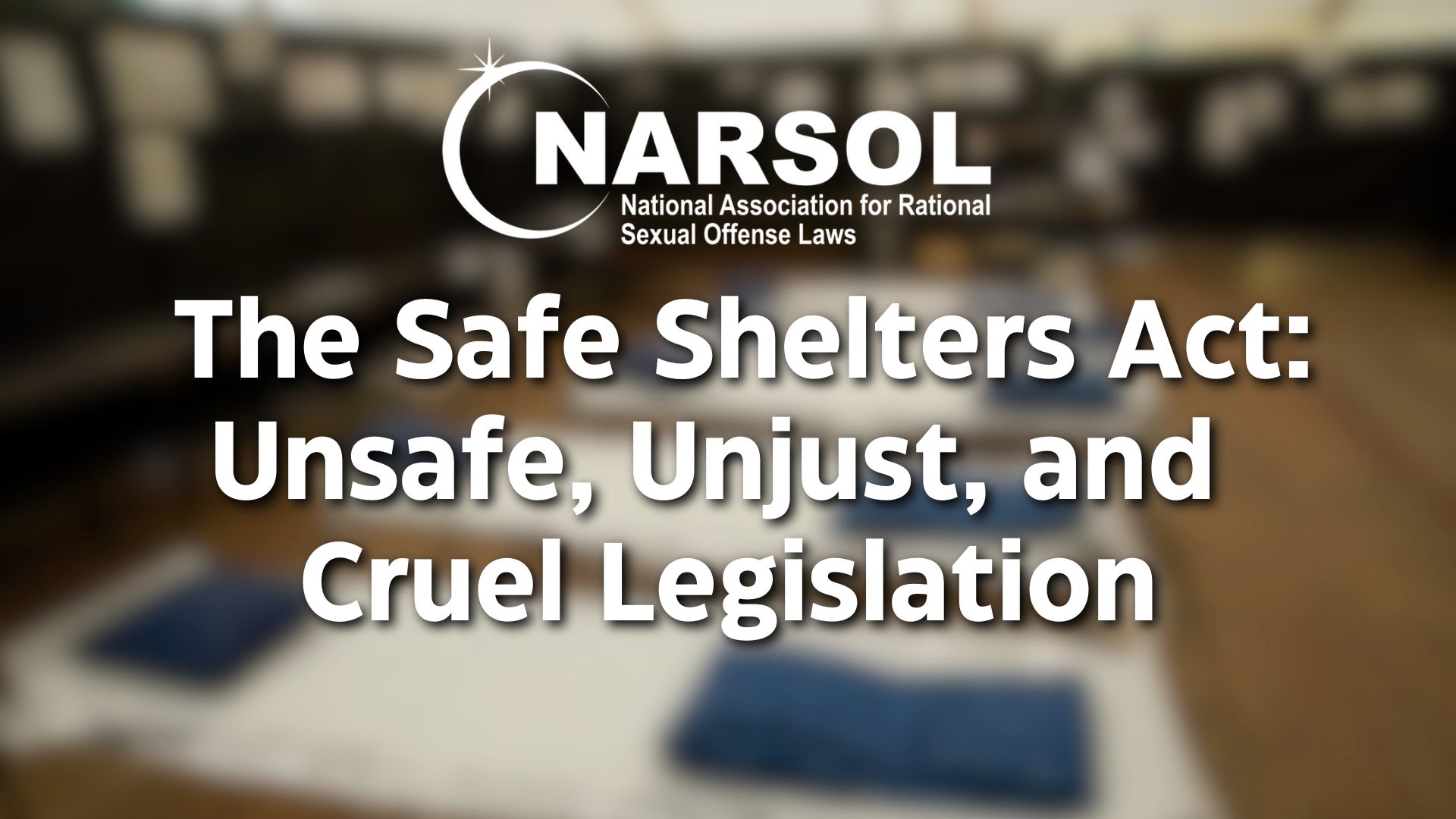NO! We don’t need another sex offender law to fight
By Sandy….
A woman in Oklahoma has gotten the attention of state legislators after creating a Facebook page protesting that the uncle who was convicted for abusing her as a child was allowed to live next door to her. After his recent release from prison, Harold English of Bristow, Oklahoma, moved into his mother’s home. The mother of English and grandmother of Danyelle Deyer has said that her son had nowhere else to live.
The exclusionary zones in Bristow make English finding another residence very problematic; however, he is now under a temporary order forcing him to leave the home. Legislators have rushed to close this “loophole” in the law, and House Bill 1124 will be making its way through the Oklahoma legislature in the next session.
It is expected to pass with little to no opposition, and if it does so, it will forbid any convicted sex offender from living or being within 1,000 feet of the home of his or her victim.
This is a move that could prove disastrous.
Helpful media outlets are already counting up the states that have no restrictions about where registrants may live in relation to their former victims. Lawmakers in other states are paying attention. How long will it be before they too feel the need to enact similar legislation? If and when they do, they will be repeating the pattern that created today’s chaos to begin with: taking a specific situation and deciding that the remedy for it needs to apply to everyone who falls under the same broad category and often, compounding its flaws, applying it retroactively.
Dictating where any American citizen may not be or reside after that citizen has fulfilled his or her court-ordered punishment for a crime is a violation of the U.S. Constitution. That has been and is continuing to be recognized in courts across the land as punitive. Lawmakers would do well to keep that in mind before piling on more restrictions that will be subject to more and more lawsuits.
Additionally, a law such as this one would have negative effects on a certain type of sex offender therapy.
Virtually all child sexual abuse is committed by a relative or someone else close to the family, as happened in this case. For children age six and under, the perpetrator is found to be a close family member in close to 50% of the cases.
Family reunification therapy is one tool available to treatment providers, and one that in the right circumstances is very valuable. It is a program designed for offenders who recognize and take responsibility for their own behavior and are willing and able to live within the limits placed upon them by the treatment program, the judicial system, and society.
It is a survivor-led process, in partnership with non-offending caregivers, with the priority concern being the safety of the child. If at any point the child who was sexually abused does not wish to move forward with reunification, the process is stopped immediately.
When desired by all relevant persons, this therapy model offers hope for recovery for both victims and perpetrators. It has been found especially valuable with juveniles when the offending situation was that of an older sibling against a younger or more vulnerable one. For many, this type of therapy, with its emphasis on accepting responsibility, forgiveness, and accountability in equal parts, has been a lifesaver for both former victims and former perpetrators.
Lowered re-offense rates are closely linked to an offender’s ability to gain and maintain stable living conditions as well as family support. The family reunification model provides one path to achieving these goals. Legislation such as HB 1124 in Oklahoma would remove that option from those who want it. That, coupled with the fact that it runs afoul of the protections of the Constitution, makes it an extremely unwise choice.
Those who are forced to live as registered citizens already have multiple abridgements of constitutional rights and protections and a plethora of fodder for fighting lawsuits. We do not need more.


